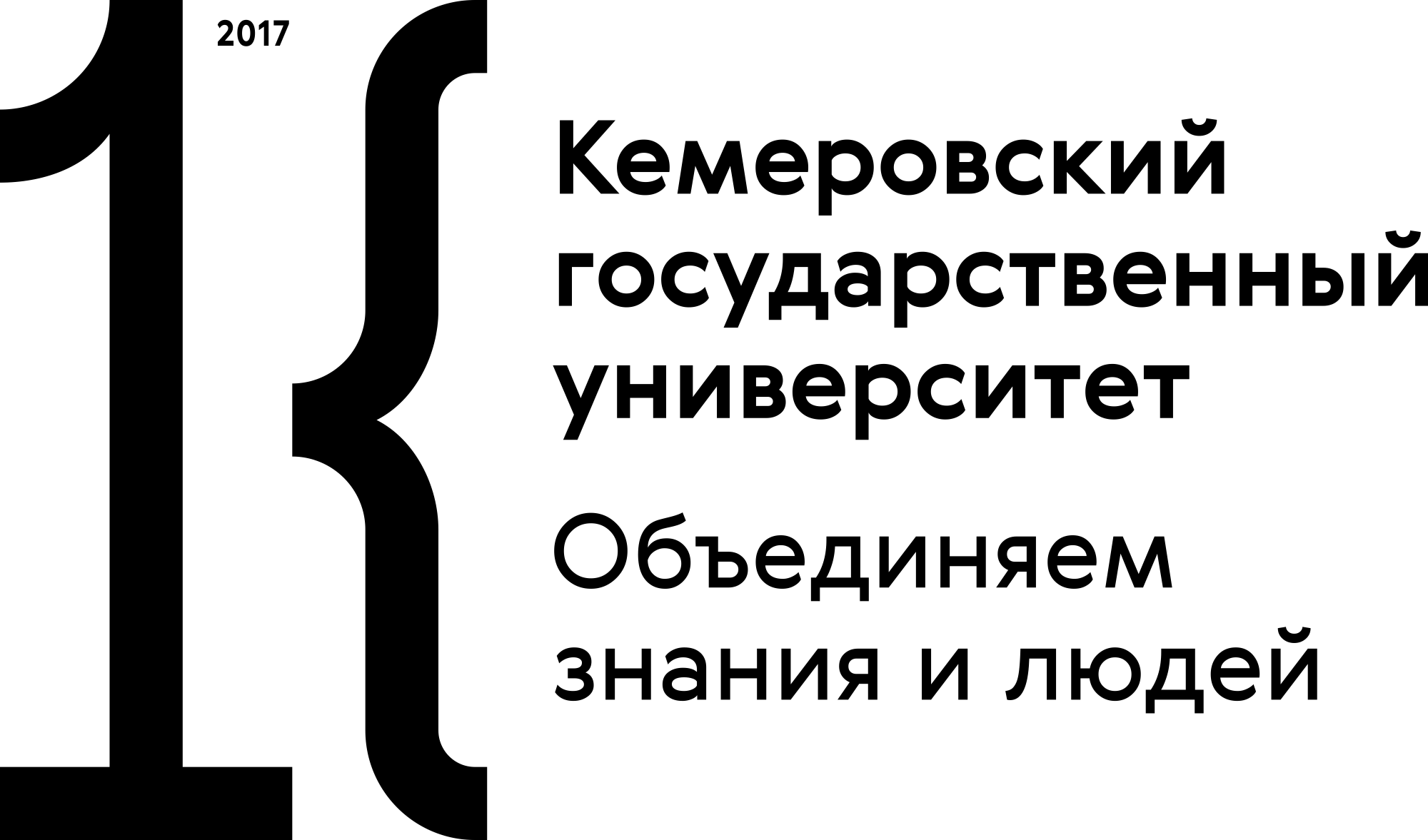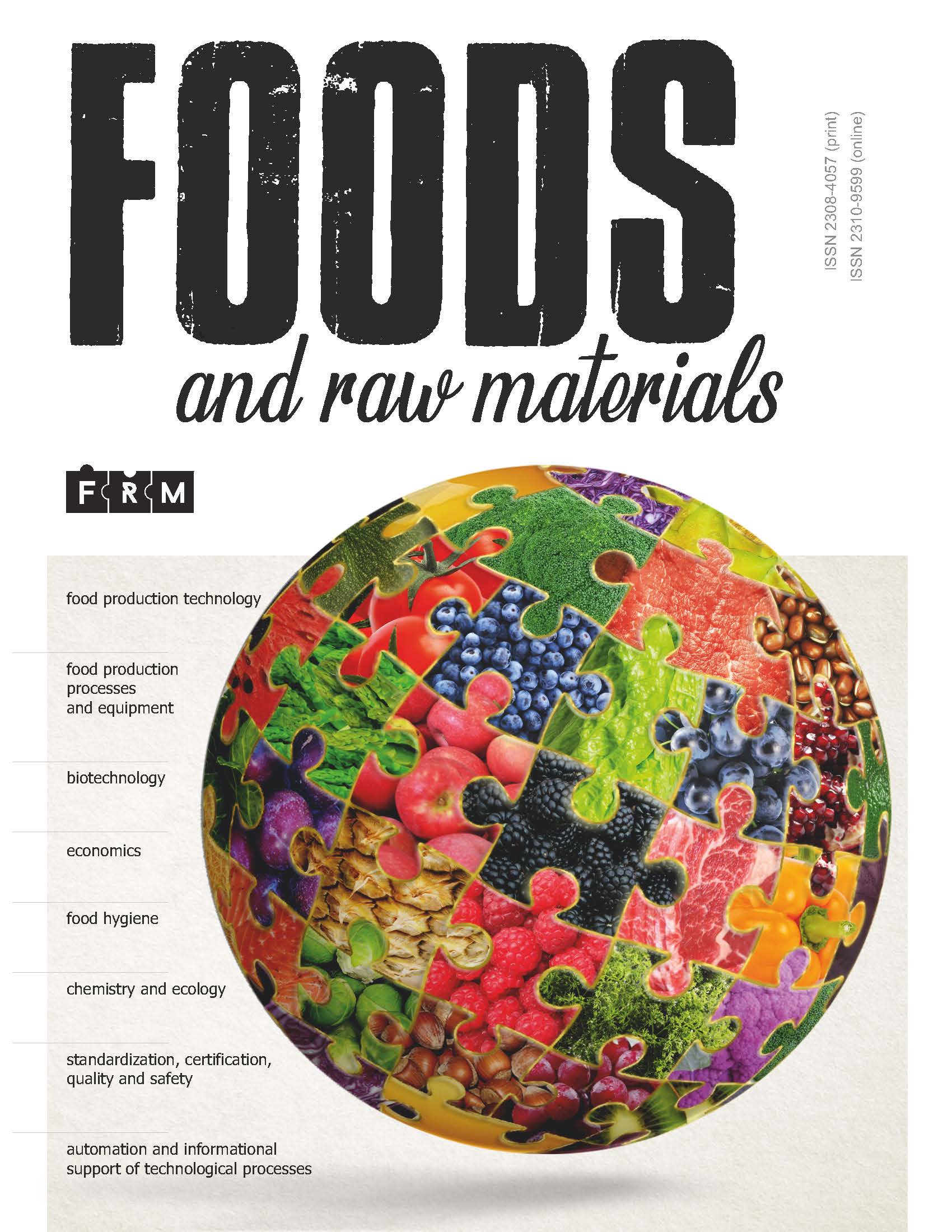Voronezh, Voronezh, Russian Federation
Voronezh, Voronezh, Russian Federation
Moscow, Moscow, Russian Federation
Voronezh, Voronezh, Russian Federation
Moscow, Russian Federation
Voronezh, Voronezh, Russian Federation
When formulating a product, it is just as important to measure changes in free and bound moisture as it is to analyze quality indicators. Zephyr, a Russian whipped dessert, made with sugar dries quickly during storage, gradually losing its moisture. Its crystalline sugar crust thickens and its entire mass saccharifies, resulting in higher firmness and poor appearance. In this study, we aimed to determine the effect of high-conversion glucose syrup on the amount of moisture and its binding forms in zephyr after storage. We studied four samples of pectin-based zephyr with different carbohydrate profiles after three months of storage. Differential scanning calorimetry, thermogravimetry, and non-isothermal kinetics were applied to assess moisture contents and forms of binding in zephyr. Thermograms with thermoanalytical curves were used to analyze the thermolysis of zephyr samples with different contents of glucose syrup in the temperature range from 20 to 300°C. We also studied the endothermic effects at various stages of thermolysis and measured free and bound moisture in the samples. Four stages of their dehydration were identified on the basis of graphical dependences between weight changes and heating temperatures. The control zephyr sample contained more capillary and polymolecular bound moisture, while the experimental samples in which sugar and confectioner’s syrup were partially or completely replaced with high-conversion glucose syrup had more polymolecular and monomolecular bound moisture. The use of high-conversion glucose syrup instead of sugar and confectioner’s syrup reduced the amount of free moisture and therefore increased the amount of bound moisture, keeping zephyr fresh throughout its shelf life.
Zephyr, glucose syrup, differential thermal analysis, moisture content, forms of moisture binding
1. Soldatova EA, Misteneva SYu, Savenkova TV. Conditions and criteria for ensuring the storage ability of confectionery. Food Industry. 2019;(5):82-85. (In Russ.). https://doi.org/10.24411/0235-2486-2019-10078
2. Ketel EC, de Wijk RA, de Graaf C, Stieger M. Effect of cross-cultural differences on thickness, firmness and sweetness sensitivity. Food Research International. 2020;152. https://doi.org/10.1016/j.foodres.2020.109890
3. Herremans E, Bongaers E, Estrade P, Gondek E, Hertog M, Jakubczyk E, et al. Microstructure - texture relationships of aerated sugar gels: Novel measurement techniques for analysis and control. Innovative Food Science and Emerging Technologies. 2013;18:202-211. https://doi.org/10.1016/j.ifset.2013.02.003
4. Iijima M, Hatakeyama T, Hatakeyama H. DSC and TMA studies of polysaccharide physical hydrogels. Analytical Sciences. 2021;37:211-219. https://doi.org/10.2116/analsci.20SAR10
5. Frolova YuV, Sobolev RV, Sarkisyan VA, Kochetkova AA. Effect of polysaccharide compounds on the stability of oil-in-water emulsions during storage. Food Processing: Techniques and Technology. 2022;52(1):32-45. (In Russ.). https://doi.org/10.21603/2074-9414-2022-1-32-45
6. Wang Y, Truong T, Li H, Bhandari B. Co-melting behaviour of sucrose, glucose & fructose. Food Chemistry. 2019;275:292-298. https://doi.org/10.1016/j.foodchem.2018.09.109
7. Gunes R, Palabiyik I, Konar N, Toker OS. Soft confectionery products: Quality parameters, interactions with processing and ingredients. Food Chemistry. 2022;385. https://doi.org/10.1016/j.foodchem.2022.132735
8. Sánchez M, Gomez J, Giraldo C. Effect of the incorporation of polyols, fructooligosaccharides and antihypertensive peptides in a deposited masmelo. Revista Colombiana de Investigaciones Agroindustriales. 2022;9(2):1-14. (In Spanish).
9. Plotnikova IV, Magomedov GO, Zharkova IM, Miroshnichenko EN, Plotnikov VE. Jelly formulated with different carbohydrate profiles: Quality evaluation. Foods and Raw Materials. 2022;10(2):262-273. https://doi.org/10.21603/2308-4057-2022-2-535
10. Khvostov AA, Magomedov GO, Ryazhskih VI, Plotnikova IV, Zhuravlev AA, Magomedov MG. Cooling caramel in ethyl alcohol: Constructing a mathematical model. Food Processing: Techniques and Technology. 2020;50(3):425-438. (In Russ.). https://doi.org/10.21603/2074-9414-2020-3-425-438
11. Magomedov GO, Plotnikova IV, Kuznetsova IV, Naumchenko IS, Saranov IA. The study of forms of bonding marshmallow moisture with different composition by method of thermal analysis. Proceedings of the Voronezh State University of Engineering Technologies. 2017;79(3):42-50. (In Russ.). https://doi.org/10.20914/2310-1202-2017-3-42-50
12. Plotnikova IV, Magomedov MG, Zanudina TG. Method of preparation of marshmallow. Patent RU 2674629C1. 2018.
13. Kondratyev NB, Kazantsev EV, Osipov MV, Bazhenova AE, Linovskaya NV. The influence of the amount of caramel syrup on the processes of moisture transfer during the storage of marmalade. Proceedings of the Voronezh State University of Engineering Technologies. 2020;82(4):24-29. (In Russ.). https://doi.org/10.20914/2310-1202-2020-4-24-29
14. Parniakov O, Bals O, Barba FJ, Mykhailyk V, Lebovka N, Vorobiev E. Application of differential scanning calorimetry to estimate quality and nutritional properties of food products. Critical Reviews in Food Science and Nutrition. 2018;58(3):362-385. https://doi.org/10.1080/10408398.2016.1180502
15. Tutunchi P, Roufegarinejad L, Hamishehkar H, Alizadeh A. Extraction of red beet extract with β-cyclodextrin-enhanced ultrasound assisted extraction: A strategy for enhancing the extraction efficacy of bioactive compounds and their stability in food models. Food Chemistry. 2019;297. https://doi.org/10.1016/j.foodchem.2019.124994
16. Kawai K, Uneyama I, Ratanasumawong S, Hagura Y, Fukami K. Effect of calcium maltobionate on the glass transition temperature of model and hand-made hard candies. Journal of Applied Glycoscience. 2019;66(3):89-96. https://doi.org/10.5458/jag.jag.JAG-2019_0005
17. Mayhew EJ, Schmidt SJ, Lee S-Y. Sensory and physical effects of sugar reduction in a caramel coating system. Journal of Food Science. 2017;82(8):1935-1946. https://doi.org/10.1111/1750-3841.13785
18. Kazantseva IL. Research of forms of a moisture communication in the raw materials and the finished confectionery by thermal analysis method. Storage and Processing of Farm Products. 2015;(7):36-40. (In Russ.). https://elibrary.ru/UNXXSH
19. Rodionova NS, Popov ES, Klimova EA, D'yakov AA. The influence of natural biocorrectors on the forms of communication of moisture and storage of confectionery with honey. Food Industry. 2019;(11):16-19. (In Russ.). https://doi.org/10.24411/0235-2486-2019-10170
20. Rivero R, Archaina D, Sosa N, Leiva G, Baldi Coronel B, Schebor C. Development of healthy gummy jellies containing honey and propolis. Journal of the Science of Food and Agriculture. 2020;100(3):1030-1037. https://doi.org/10.1002/jsfa.10107
21. Rodionova NS, Popov ES, Matveev DI, Pevtsova ES, Sokolova AV, Diakov AA. Vegetable biocorrectors influence on the moisture state in functional purpose flour products. Proceedings of the Voronezh State University of Engineering Technologies. 2019;81(1):190-195. (In Russ.). https://doi.org/10.20914/2310-1202-2019-1-190-195
22. Rodionova NS, Popov ES, Rodionov AA, Razinkova TA. Assessment of the exopolysaccharide activity of probiotic consortia using differential thermal analysis. Proceedings of Universities. Applied Chemistry and Biotechnology. 2018;8(4):95-105. (In Russ.). https://doi.org/10.21285/2227-2925-2018-8-4-95-105
23. Rodionova NS, Razinkova TA, Popov ES, Polyansky KK, Rodionova NA, Zarubina KYu, et al. Exopolysaccharide activity of probiotic microorganisms under different fermentation regimes. Dairy Industry. 2020;(4):28-30. (In Russ.). https://elibrary.ru/ORYXJJ
24. Mardani M, Yeganehzad S, Ptichkina N, Kodatsky Yu, Kliukina O, Nepovinnykh N, et al. Study on foaming, rheological and thermal properties of gelatin-free marshmallow. Food Hydrocolloids. 2019;93:335-341. https://doi.org/10.1016/j.foodhyd.2019.02.033
25. Ostrikov AN, Kuznetsova IV, Glukhov MA, Rudometkin AS. Differential thermal analysis of wheat and bean mixture. Transactions of the TSTU. 2007;13(1):95-100. (In Russ.). https://elibrary.ru/KARYOJ
26. Ostrikov AN, Napolskikh MS. Differential thermal analysis for the study of bonds between moisture of vegetable-meat mixture conatining lupin, lentil and sublimated meat. Problems of Contemporary Science and Practice. Vernadsky University. 2012;42(4):335-339. (In Russ.). https://elibrary.ru/PJVSTH
27. Ozcan Y, Icyer NC, Ozmen D, Toker OS. Effect of soapwort extract as an alternative to albumin on the physical, textural, sensory, and rheological properties of marshmallow. Journal of Food Processing and Preservation. 2022;46(11). https://doi.org/10.1111/jfpp.16931
28. Pozhidaeva EA, Popov ES, Ilyushina AV, Bolotova NV, Ivanova EV. Study of the forms of moisture binding in curd products by differential scanning calorimetry and thermogravimetry. Food Industry. 2018;(11):73-77. (In Russ.). https://elibrary.ru/YQIENF
29. Sánchez-Romero MA, García-Coronado P, Rivera-Bautista C, González-García R, Grajales-Lagunes A, Abud-Archila M, et al. Experimental data and predictive equation of the specific heat capacity of fruit juice model systems measured with differential scanning calorimetry. Journal of Food Science. 2021;86(5):1946-1962. https://doi.org/10.1111/1750-3841.15693
30. Shakhov SV, Saranov IA, Sadibaev AK, Malibekov AA, Litvinov EV, Gruzdov PV. The research of moisture forms in the rape by the thermogravimetric analysis method. Proceedings of the Voronezh State University of Engineering Technologies. 2019;81(1):27-31. (In Russ.). https://doi.org/10.20914/2310-1202-2019-1-27-31
31. Jakubczyk E, Gondek E, Kamińska-Dwórznicka A, Samborska K, Wiktor A, Królikowski K. A complex approach to assessing properties of aerated agar-fructose gels: Application of acoustic emission technique. Food Hydrocolloids. 2019;91:66-75. https://doi.org/10.1016/j.foodhyd.2019.01.013
32. Jakubczyk E, Kamińska-Dwórznicka A. Effect of addition of chokeberry juice concentrate and foaming agent on the physical properties of agar gel. Gels. 2021;7(3). https://doi.org/10.3390/gels7030137
33. Kondratiev NB, Osipov MV, Petrova NA. Management of fat and moisture migration processes during confectionery storage. Food Products Commodity Expert. 2022;(5):352-354. (In Russ.). https://doi.org/10.33920/igt-01-2205-17
34. Delgado P, Bañón S. Effects of replacing starch by inulin on the physicochemical, texture and sensory characteristics of gummy jellies. CyTA - Journal of Food. 2017;16(1):1-10. https://doi.org/10.1080/19476337.2017.1327462
35. Mariz de Avelar MH, de Castilho Queiroz G, Efraim P. Sustainable performance of cold-set gelation in the confectionery manufacturing and its effects on perception of sensory quality of jelly candies. Cleaner Engineering and Technology. 2020;1. https://doi.org/10.1016/j.clet.2020.100005
36. Kurt A, Bursa K, Toker OS. Gummy candies production with natural sugar source: Effect of molasses types and gelatin ratios. Food Science and Technology International. 2022;28(2). https://doi.org/10.1177/1082013221993566
37. Moghaddas Kia E, Ghaderzadeh S, Mojaddar Langroodi A, Ghasempour Z, Ehsani A. Red beet extract usage in gelatin/gellan based gummy candy formulation introducing Salix aegyptiaca distillate as a flavouring agent. Journal of Food Science and Technology. 2020;57(9):3355-3362. https://doi.org/10.1007/s13197-020-04368-8
38. Danilchenko AS, Siyukhov KhR, Korotkova TG, Siyukhova BB. Determination of the content of free and attached moisture in spent grain. New Technologies. 2020;15(4):41-52. (In Russ.). https://doi.org/10.47370/2072-0920-2020-15-4-41-52
39. Kondratiev NB, Rudenko OS, Osipov MV, Bazhenova AE. Forecasting the shelf life of confectionery products under accelerated storage conditions: scoping review. Storage and Processing of Farm Products. 2022;(4):22-39. (In Russ.). https://doi.org/10.36107/spfp.2022.354











